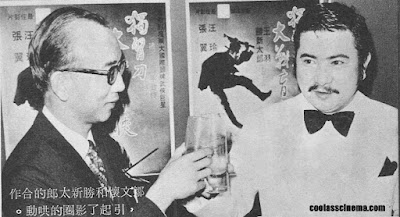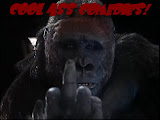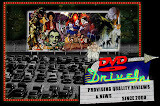In June of 1969, then Deputy General Manager of Shaw Brothers Studio, Raymond Chow gave an interview for TVB's Radio Hong Kong (now RTHK) about how films were made at Movie Town--the magic factory where the Shaw Brothers produced dozens of films a year for an entertainment-starved populace. Reporters and members of the audience asked Mr. Chow detailed and thorough questions about the inner workings of the company, its stars, how the films were made, and the HK film industry itself. This vintage discussion offers a unique look into HK film production at the time, and from the perspective of Run Run Shaw's then right-hand man, the future president of Golden Harvest, Raymond Chow. (Top: Raymond Chow answering questions on Radio Hong Kong)
This interview contains a dozen images, many of which are rare, from when Chow was at Shaw Brothers Studio and various times at Golden Harvest from 1970-1973.
 RAYMOND CHOW OPENING STATEMENT: Hong Kong is a small place with a large population that's limited by its surroundings. Forms of entertainment are limited for its 4 million residents. The cinema has become one of the most important forms of entertainment for us here in the last ten to twenty years. According to statistics from the UN, Hong Kong residents accounted for the largest number of moviegoers in the world. There are 115 movie theaters in Hong Kong--24 of which show first-run Western films. Ten years ago there were only four theaters in Hong Kong showing Mandarin films. In ten years the audience has increased twenty-fold in comparison. In HK, Taiwan, and Singapore and Malaysia, Chinese films continue to win over foreign viewers. In the Philippines, Thailand and Vietnam trends are moving in a similar direction. This is one of the great rewards of HK filmmakers. (Insert: Run Run Shaw and his protege Raymond Chow study films in a screening room in 1966)
RAYMOND CHOW OPENING STATEMENT: Hong Kong is a small place with a large population that's limited by its surroundings. Forms of entertainment are limited for its 4 million residents. The cinema has become one of the most important forms of entertainment for us here in the last ten to twenty years. According to statistics from the UN, Hong Kong residents accounted for the largest number of moviegoers in the world. There are 115 movie theaters in Hong Kong--24 of which show first-run Western films. Ten years ago there were only four theaters in Hong Kong showing Mandarin films. In ten years the audience has increased twenty-fold in comparison. In HK, Taiwan, and Singapore and Malaysia, Chinese films continue to win over foreign viewers. In the Philippines, Thailand and Vietnam trends are moving in a similar direction. This is one of the great rewards of HK filmmakers. (Insert: Run Run Shaw and his protege Raymond Chow study films in a screening room in 1966) Our film industry has made a significant contribution to its development in foreign markets. If we hire foreign directors and actors to work in HK, the Immigration Bureau will try its best to give us conveniences. However, compared with other industries, the assistance we receive is still not ideal. For example, it is necessary to relax film censorship. We know their responsibility is to uphold the law and morality, but if it is too strict, and although we have the opportunity to appeal, it is far too time-consuming and troublesome. This can have an impact on the box office. This is especially true in regard to how scenes involving exposure of the human body are handled. We don't see this doing much harm to society. On the contrary, there are pornographic books and periodicals with far more revealing pictures and obscene words that can be purchased at anytime out on the street. The bad influence of such material is many times worse than what little we show on-screen. Film has a cultural and educational responsibility, so we all try our best to find good themes. The film industry hopes that the government can provide more support to help Hong Kong's economy and prosperity. (Insert: Raymond Chow, Leonard Ho, Angela Mao, Nora Miao and others at Golden Harvest's first New Year's Party in February of 1971; the company had 70 employees at launch)
Our film industry has made a significant contribution to its development in foreign markets. If we hire foreign directors and actors to work in HK, the Immigration Bureau will try its best to give us conveniences. However, compared with other industries, the assistance we receive is still not ideal. For example, it is necessary to relax film censorship. We know their responsibility is to uphold the law and morality, but if it is too strict, and although we have the opportunity to appeal, it is far too time-consuming and troublesome. This can have an impact on the box office. This is especially true in regard to how scenes involving exposure of the human body are handled. We don't see this doing much harm to society. On the contrary, there are pornographic books and periodicals with far more revealing pictures and obscene words that can be purchased at anytime out on the street. The bad influence of such material is many times worse than what little we show on-screen. Film has a cultural and educational responsibility, so we all try our best to find good themes. The film industry hopes that the government can provide more support to help Hong Kong's economy and prosperity. (Insert: Raymond Chow, Leonard Ho, Angela Mao, Nora Miao and others at Golden Harvest's first New Year's Party in February of 1971; the company had 70 employees at launch)QUESTIONER: What are the qualifications to become an actor, and how can one become a successful actor?
RAYMOND CHOW: The most basic requirement for an actor is fate. What makes an actor pleasing to viewers isn't necessarily their appearance or how pretty they are. It is mainly due to their acting abilities. Unfortunately, there is no special training school for this in Hong Kong. We often hear about the miracle of becoming famous overnight, but for every young person who is interested in joining our industry, we point out quite frankly that success in the movies can only be achieved through continuous hard work; which is by no means as easy as ordinary people might think it is.
QUESTIONER: We want to know what is the basis for trends in Mandarin movies made in HK? Can Mr. Chow predict the next trend in Hong Kong?
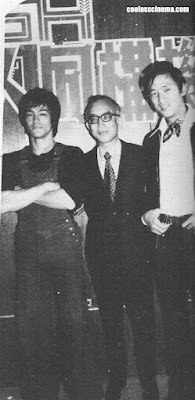 RAYMOND CHOW: Here in HK, action films are currently the most trendy. In a narrow sense, martial arts films are quite popular today. The birth of a trend, such as something like clothing styles or automobiles, is difficult to analyze. According to our opinion, at certain periods of time, there were two or three films from a particular genre that were especially well-shot and became very popular and successful due to word-of-mouth. When this happens others will follow suit and the trend is created. The same is true for the rise of James Bond and other spy pictures in the United States. Chinese martial arts films are booming and for a reason. Further analysis shows that action movies are more welcomed by audiences because there are plentiful action sequences and fewer dialog scenes; there's less for the viewer to think about and just be entertained by the maneuvers on-screen. In foreign countries, for example, the tide has turned to films with a heavier emphasis on sex. But Hong Kong's Chinese people have different tastes and our inherent morality is also different. Even with the exposure to more Western films, our martial art productions should continue to maintain their current popularity. (Insert: Bruce Lee, Raymond Chow, Jimmy Wang Yu at Chinese New Year Party in 1973)
RAYMOND CHOW: Here in HK, action films are currently the most trendy. In a narrow sense, martial arts films are quite popular today. The birth of a trend, such as something like clothing styles or automobiles, is difficult to analyze. According to our opinion, at certain periods of time, there were two or three films from a particular genre that were especially well-shot and became very popular and successful due to word-of-mouth. When this happens others will follow suit and the trend is created. The same is true for the rise of James Bond and other spy pictures in the United States. Chinese martial arts films are booming and for a reason. Further analysis shows that action movies are more welcomed by audiences because there are plentiful action sequences and fewer dialog scenes; there's less for the viewer to think about and just be entertained by the maneuvers on-screen. In foreign countries, for example, the tide has turned to films with a heavier emphasis on sex. But Hong Kong's Chinese people have different tastes and our inherent morality is also different. Even with the exposure to more Western films, our martial art productions should continue to maintain their current popularity. (Insert: Bruce Lee, Raymond Chow, Jimmy Wang Yu at Chinese New Year Party in 1973)QUESTIONER: If the world trends towards more sex on-screen, will Shaw Brothers also make sex films to cater to the audience tastes?
RAYMOND CHOW: As I said moments ago, movies with heavier doses of sexual content may not be accepted by Chinese audiences. It is currently impossible for us to make such movies.
QUESTIONER: As for revealing scenes in motion pictures, the government's Film Censorship Office often prohibits showing anything too revealing, which may seem unfair to you or some viewers. In the US, producers have their own organization that rates their films into four categories. Mr. Chow, do you think this system could work in Hong Kong?
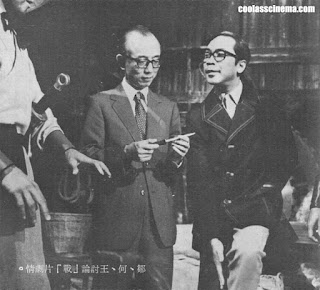 RAYMOND CHOW: This is not only the case in America but in Japan as well. There is no government film inspection agency in Japan. The five major film companies there set up their own organizations to review their own works. This system may not be very ideal in Hong Kong. The government here is different from other places so we cannot generalize it. We hope that our industry can have its own committee to receive certain issues in a consultative manner with the governments prosecutorial office. For political review, the government's inspection office can take care of itself. That is, what we want is a self-regulating body, but we are not advocating to completely replace government censorship.
RAYMOND CHOW: This is not only the case in America but in Japan as well. There is no government film inspection agency in Japan. The five major film companies there set up their own organizations to review their own works. This system may not be very ideal in Hong Kong. The government here is different from other places so we cannot generalize it. We hope that our industry can have its own committee to receive certain issues in a consultative manner with the governments prosecutorial office. For political review, the government's inspection office can take care of itself. That is, what we want is a self-regulating body, but we are not advocating to completely replace government censorship. (Insert: Raymond Chow, Leonard Ho and Wang Yu off-camera on the set of BEACH OF THE WAR GODS in 1971)
QUESTIONER: In addition to local films, there are many Mandarin films made in Taiwan. Can Mr. Chow explain the difference between the two markets?
RAYMOND CHOW: Most of the Chinese films made outside HK are produced in Taiwan. Generally speaking, Hong Kong is better than Taiwan in terms of technology. Taiwan has the advantage in terms of location because of their geographical environment. Taiwan also puts more emphasis on literature and art because it publishes more books and novels, and the movies are mostly adapted from them. Hong Kong has a majority of action films; by that I mean there are more action movies shot in HK. Taiwan's literary productions are much better than ours due to the lack of locations here. We often have to go to Korea and Japan and Taiwan.
QUESTIONER: There seems to be a shortage of film directing talent in HK. Many of our films rely heavily on foreign talent as directors. What is the reason for this?
 RAYMOND CHOW: Film is a comprehensive art that requires talents from various fields to make your company more successful. Take Hollywood for example, the most developed film industry in the world. Its success is due to to its eclectic ability to recruit talents from all over the world. Many famous directors are not American, but British and Italian. Many famous stars are Swedish are European. The distinction between national borders should be discarded and there should be no mentality of rejecting foreigners in our industry. By integrating talent from various countries, we can exchange experience and absorb more knowledge from different countries. We often hire Japanese directors and technicians to collaborate on our productions. At the same time, we also send our staff to Japan and Europe to study. Recently, we have sent five university graduates to Japan to specialize in five-year university film courses because we lack these facilities in HK to train talents. We hope that they can apply what they have learned to our industry upon their return. (Insert: Raymond Chow with Bruce Lee at the Golden Harvest New Year's Party in 1972)
RAYMOND CHOW: Film is a comprehensive art that requires talents from various fields to make your company more successful. Take Hollywood for example, the most developed film industry in the world. Its success is due to to its eclectic ability to recruit talents from all over the world. Many famous directors are not American, but British and Italian. Many famous stars are Swedish are European. The distinction between national borders should be discarded and there should be no mentality of rejecting foreigners in our industry. By integrating talent from various countries, we can exchange experience and absorb more knowledge from different countries. We often hire Japanese directors and technicians to collaborate on our productions. At the same time, we also send our staff to Japan and Europe to study. Recently, we have sent five university graduates to Japan to specialize in five-year university film courses because we lack these facilities in HK to train talents. We hope that they can apply what they have learned to our industry upon their return. (Insert: Raymond Chow with Bruce Lee at the Golden Harvest New Year's Party in 1972)QUESTIONER: We hire Japanese filmmakers, but what about foreign actors like Brigitte Bardot participating in our domestic pictures?
RAYMOND CHOW: If there is a suitable script and production costs are possible, we are of course very willing to invite Brigitte Bardot or other equally famous foreign stars to perform in HK. What matters is the issue of money. At present, our market is still narrow and cannot be distributed worldwide like American or European films. However, if stars like Brigitte Bardot were to come to HK to make movies, the remuneration would be extremely high and we may not be able to afford it.
QUESTIONER, HO DE CHONG: I feel that female movie stars are favored in HK over male stars. What is the reason for this?
RAYMOND CHOW: I think this isn't accurate. Perhaps Mr. Ho is biased towards female stars so he feels they are more valued. In our company, there are 75 male actors and 73 female stars. I think most male audience members welcome female stars. Women viewers mostly love the male stars though they may be reluctant to express this feeling due to their conservative values. The industry has evolved beyond female stars being more popular than the men. This is my personal observation.
QUESTIONER: Although I like some female stars, I agree with Mr. Ho's statement that the women are more valued in HK. I wonder if Shaw Brothers promotion of female actors is more obvious? Take the Asian Film Festival as an example; it is always a woman that wins Best Actor. I have never heard of a man winning for Best Actor. I am wondering if the acting skills of male actors seen as inferior to the women?
 RAYMOND CHOW: This is also an inaccurate statement. For film companies, promoting the women is just as important as promoting the men. And our publicity is mostly based on the film itself as opposed to a particular star headlining it. As for the Asian Film Festival's methods of selecting stars for their awards, the judging committee of the festival is composed of two well-known locals who have knowledge of the film industries within the seven participating regions. The selection meeting is made up of a 14-member committee that is held two weeks prior to the festival. The judging process is not influenced by any one person. In fact, representatives from the various countries do not gather for the local meeting at the festival. They rate the pictures after watching each film individually. Therefore, it is impossible for Shaw Brothers or the Hong Kong Producers Association to deliberately promote a certain actor or actress as the Best Actor. The real power of selection lies with the committee. Then it's in the hands of the four judges. (Insert: Raymond Chow signing Joseph Kuo Nan Hung at Shaw Brothers in 1968)
RAYMOND CHOW: This is also an inaccurate statement. For film companies, promoting the women is just as important as promoting the men. And our publicity is mostly based on the film itself as opposed to a particular star headlining it. As for the Asian Film Festival's methods of selecting stars for their awards, the judging committee of the festival is composed of two well-known locals who have knowledge of the film industries within the seven participating regions. The selection meeting is made up of a 14-member committee that is held two weeks prior to the festival. The judging process is not influenced by any one person. In fact, representatives from the various countries do not gather for the local meeting at the festival. They rate the pictures after watching each film individually. Therefore, it is impossible for Shaw Brothers or the Hong Kong Producers Association to deliberately promote a certain actor or actress as the Best Actor. The real power of selection lies with the committee. Then it's in the hands of the four judges. (Insert: Raymond Chow signing Joseph Kuo Nan Hung at Shaw Brothers in 1968)QUESTIONER: How many Shaw Brothers movies are made each year?
RAYMOND CHOW: Based on our current production numbers, it is about 40-45 films per year. Last year we produced 41.
QUESTIONER: What is the scope of your company's distribution?
RAYMOND CHOW: Our main markets are Hong Kong, Singapore, Malaysia, and Taiwan; and other Southeast Asian regions such as the Philippines, Vietnam and Thailand, Indonesia, etc, are all important markets. We also have a reach as far as North and South America, but those are markets are comparatively smaller at the moment. Recently we have enacted a plan to open up the market in South America by dubbing some of our films in English to be released there. ONE ARMED SWORDSMAN (1967) is to be the first to see release in Brazil. (Top: Chang Cheh, Raymond Chow, Kao Pao Shu at Shaw's New Year's Party in 1970)
QUESTIONER: Is the Hong Kong market more important in comparison to the foreign market?
RAYMOND CHOW: In terms of the current domestic film market, Hong Kong, Taiwan, Singapore and Malaysia are all equally important. The number of viewers is difficult to estimate accurately. In our experience, in HK alone, the number of viewers for a popular movie ranges anywhere between 600,000 to 1,000,000 viewers.
QUESTIONER: In terms of taste, is there a preference for one type of film with audiences in different regions?
RAYMOND CHOW: There's not much difference between regions. What Chinese and foreign viewers want are good movies. Currently martial arts films are the most popular. The level of excitement and the styles and movements is attractive to men, women and children. Literary films are quite popular with audiences too.
QUESTIONER: Are local producers creating their own trends or just following what's fashionable overseas?
 RAYMOND CHOW: At present, the production of domestic films is undoubtedly more prosperous than in previous years, and more popular. The market is also expanding but not yet stable. As a result, many producers aren't comfortable taking chances with doing something different, and almost always make films to cater to the interest of the audience. Our film industry is different from foreign countries like the United States and India and other places. The distribution in their own countries can more easily recover their costs. (Insert: Raymond Chow seeing Lo Wei and his crew off at the airport on their way to America to shoot YELLOW FACED TIGER, aka SLAUGHTER IN SAN FRANCISCO)
RAYMOND CHOW: At present, the production of domestic films is undoubtedly more prosperous than in previous years, and more popular. The market is also expanding but not yet stable. As a result, many producers aren't comfortable taking chances with doing something different, and almost always make films to cater to the interest of the audience. Our film industry is different from foreign countries like the United States and India and other places. The distribution in their own countries can more easily recover their costs. (Insert: Raymond Chow seeing Lo Wei and his crew off at the airport on their way to America to shoot YELLOW FACED TIGER, aka SLAUGHTER IN SAN FRANCISCO)QUESTIONER: How many stages do you have inside the studio and how many workers are there?
RAYMOND CHOW: Shaw Brothers currently has ten indoor film studios and five permanent outdoor sets with a staff of 1,700 people.
QUESTIONER: Do you always use the same outdoor sets?
RAYMOND CHOW: Before shooting we often change the scenery slightly. It's not easy to notice in the film. Like one of the street sets, if you change the color or replace the signboards on the shops and rearrange interior furnishings, the same set will take on an all new look.
QUESTIONER: Of the 1,700 staff members, how many are actors and how many are other personnel?
RAYMOND CHOW: Of all the male and female actors who have signed contracts with the company account for 160 to 170 people; and we still recruit other performers and extras at any given time. These are temporarily hired from outside the company. The rest are workers--most of which are carpenters, then electricians, painters and masons. Shaw Brothers has many departments so the number of people employed for each department is quite large.
QUESTIONER: Mr. Chow, please take us through the entire filmmaking process--from the pre-production to the film's release.
 RAYMOND CHOW: The first step of course is writing the script. We currently have 18 screenwriters. Everyone selects stories from famous works and novels and submits them for review. A screenwriter then compiles an outline and then passes it along to prospective directors. Once a director is appointed and goes over the outline with the writer, then the script can be written. After it has been reviewed and has been deemed satisfactory, it is handed over to the production department for planning and preparation for shooting. The next step is to make decisions on the staff and the actors. The producer then assembles the personnel and the sets, costumes and props are ordered. The leading protagonist is decided upon first, followed by supporting players. After the actors are finalized, a formal meeting is held to discuss the roles with the actors. A few days before the start of shooting, the actors participate in wardrobe tests and the director and producer study over them to ascertain if the costuming meets the needs of the plot. If there are no major problems then shooting can officially begin. (Insert: Runme Shaw in Hong Kong discussing the business with Raymond Chow)
RAYMOND CHOW: The first step of course is writing the script. We currently have 18 screenwriters. Everyone selects stories from famous works and novels and submits them for review. A screenwriter then compiles an outline and then passes it along to prospective directors. Once a director is appointed and goes over the outline with the writer, then the script can be written. After it has been reviewed and has been deemed satisfactory, it is handed over to the production department for planning and preparation for shooting. The next step is to make decisions on the staff and the actors. The producer then assembles the personnel and the sets, costumes and props are ordered. The leading protagonist is decided upon first, followed by supporting players. After the actors are finalized, a formal meeting is held to discuss the roles with the actors. A few days before the start of shooting, the actors participate in wardrobe tests and the director and producer study over them to ascertain if the costuming meets the needs of the plot. If there are no major problems then shooting can officially begin. (Insert: Runme Shaw in Hong Kong discussing the business with Raymond Chow)QUESTIONER: How long does it take to get the actual stage of filming?
RAYMOND CHOW: From the moment we begin pre-production, if the script doesn't encounter any problems, filming can officially begin within six weeks time.
QUESTIONER: How long does it take from the start of shooting to completion?
RAYMOND CHOW: Generally speaking, the working days for a film range between 40 and 60 days. The so-called working days are not continuous. The impact of weather conditions, for example, are unpredictable. As per our past experiences, it takes about 3 to 4 months to complete the shooting portion of a film.
QUESTIONER: Can you tell us about the shooting process itself?
RAYMOND CHOW: A film usually runs for one and a half to two hours, but the shooting process can last up to 60 days. The movie you watch may look very beautiful and move at a fast pace, but the actual shooting of those scenes is arduous for the performers in ways viewers can't understand. Before we shoot a scene, the staff has to get the set ready for filming; this includes the background of the stage and the lighting of the set. The luminosity alone is very hot. Especially in summer months when actors may be wearing heavy clothing, beards and hoods as seen in period costume films. You can't be seen sweating even though the heat from the lamps can feel like the equivalent of five thousand electric stoves. This is extremely uncomfortable for the actors and unimaginable for viewers who haven't experienced it for themselves. Moreover, the working hours on any given day are 8-10 hours. In some cases when filming on exterior locations, the actors must leave for the set before the sun rises. Depending on where they are, actors may be filming out in the scorching sun or in heavy rain or snowfall. The suffering of the staff lasts for days to capture what the audience sees on-screen for only a few minutes.(Top: Raymond Chow and Shintaro Katsu on February 12th, 1971 celebrating a joint production company between them)
QUESTIONER: After filming wraps, what other work is there to do?
RAYMOND CHOW: After we finish shooting, we go into post-production and that takes between one to two months to complete. Normally, we shoot 40,000-50,000 feet of film, but we only need to use 9,000 feet of what was shot for the official screening. So, we discard the unsatisfactory and damaged parts and edit the rest together. We then dub in the dialog, the sound effects, and the music. Fortunately, we have our own color printing equipment in HK which saves a lot of time instead of printing abroad.
 QUESTIONER: The production process of a Mandarin film is so complicated with so much manpower used, how much is the average cost of a production?
QUESTIONER: The production process of a Mandarin film is so complicated with so much manpower used, how much is the average cost of a production?RAYMOND CHOW: It depends on each film company. The cost of an ordinary independent production company is relatively low. According to our estimation, it is about HK$500,000. For Shaw Brothers, the production costs required can range between HK$800,000 to HK$1.5 million. For some large-scale pictures, if they need to go to foreign countries to shoot location filming, the cost can reach HK$2 million. (Insert: Raymond Chow and Leonard Ho at court in 1971 over the lawsuit involving similarities between ONE ARMED SWORDSMAN and ZATOICHI MEETS THE ONE ARMED SWORDSMAN)







